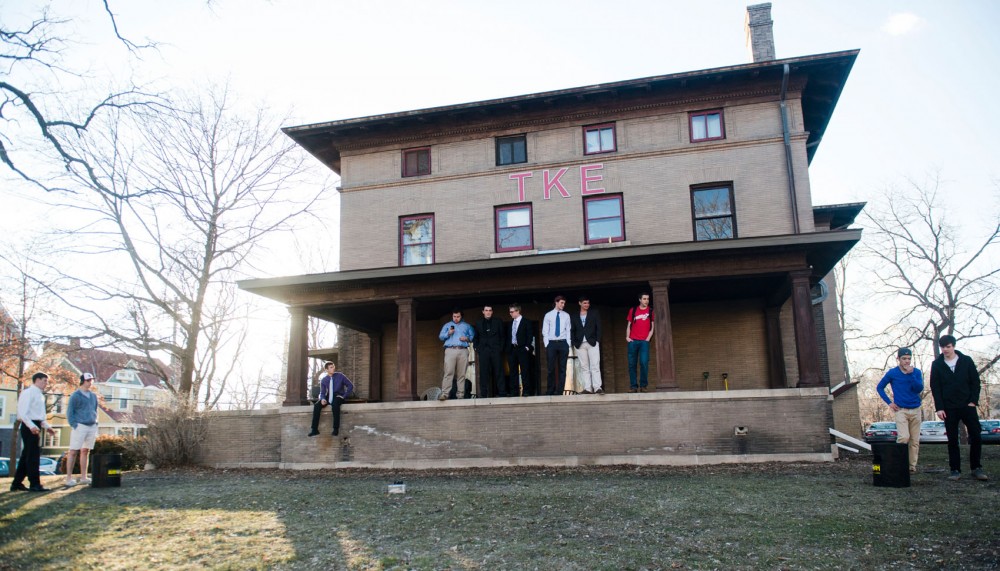A war, a house purchase and a reputation for hazing all contributed to Tau Kappa Epsilon’s four failed tries at establishing itself at the University of Minnesota.
The fraternity had its charter ceremony on Saturday, its fifth appearance at the University since 1917. This time, chapter leaders hope to make it last.
Though a history of financial issues and unsuccessful recruiting lingers, fraternity President Andrew Cumming said he thinks members’ dedication and passion for making the fraternity sustainable will have a hand in ensuring that this charter sticks.
Matt Levine, director of the Office for Fraternity and Sorority Life, said formally chartering is good for a fraternity because it’s then more likely to stay on campus. Tau Kappa Epsilon chartered four out of five of its appearances on campus.
But ultimately, a chapter’s ability to survive depends on its financial stability, said Nick Mertes, historian for the University’s Tau Kappa Epsilon chapter.
Low membership is often a key issue for struggling fraternities, but because the University’s greek community is in a period of growth, Tau Kappa Epsilon may have a better chance of staying.
Money aside, Cumming said, members are likely to be the difference between crumbling and remaining sustainable.
He said he intends to instill a “want” in members and encourage them to be as passionate as some others have been about making the chapter solid.
“Sometimes I worry that [freshmen aren’t] going to step up and take leadership,” he said. “But I’ve been proved wrong, especially in these last few weeks.”
A plagued past
When the fraternity first appeared on campus nearly a century ago, members purchased a large house that they couldn’t afford to maintain, Mertes said.
World War I also played a role in keeping the fraternity from taking off, he said, as many men enlisted in the service, limiting the number of members the chapter could gain.
The University’s chapter chartered a second time in 1949 and remained until 1963. Mertes said Tau Kappa Epsilon had a reputation for hazing during this period, which tended to deter students from pledging.
The fraternity’s most recent charter came in 1979. This lasted until the mid-1980s, but members during that time partied frequently and faded out.
“It’s my understanding that they didn’t get along super well with the U — they were kind of an “Animal House”-type fraternity,” Mertes said. “They ended up dying out because of financial constraints.”
Finally, in 2003, the fraternity surfaced once again, but it didn’t charter before departing for a fourth time in 2006. Cumming said alumni from that time don’t often reach out to current members, so the group knows little about that period on campus.
Interfraternity Council President Cameron Schilling said University fraternities are using a new form of recruiting, which has benefitted chapters across campus.
The process now takes potential new members through different houses and discusses each fraternity, Mertes said, which educates them about each chapter and about greek culture on campus.
Tau Kappa Epsilon has been a strong chapter in its most recent spell on campus, Schilling said, and he thinks members will continue doing positive things for the community.
“One thing that I really appreciate about their chapter is how friendly and inclusive they are to the entire community,” he said. “They’ve done a lot for the IFC as well.”
Cumming is confident the group that brought Tau Kappa Epsilon back to the University in 2010 would take pride in where the chapter is today.
“The people that originally started this,” he said, “I don’t think they could have imagined what it would be in just four years.”


